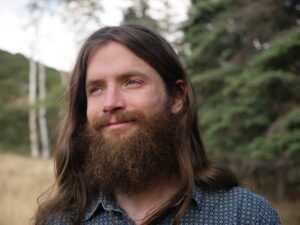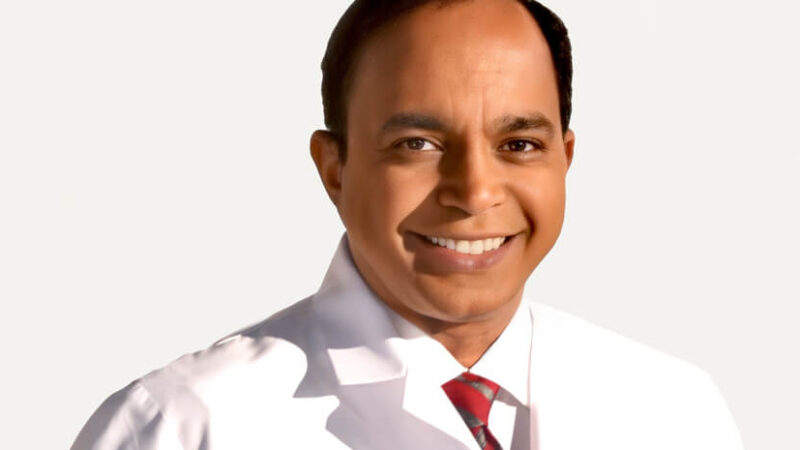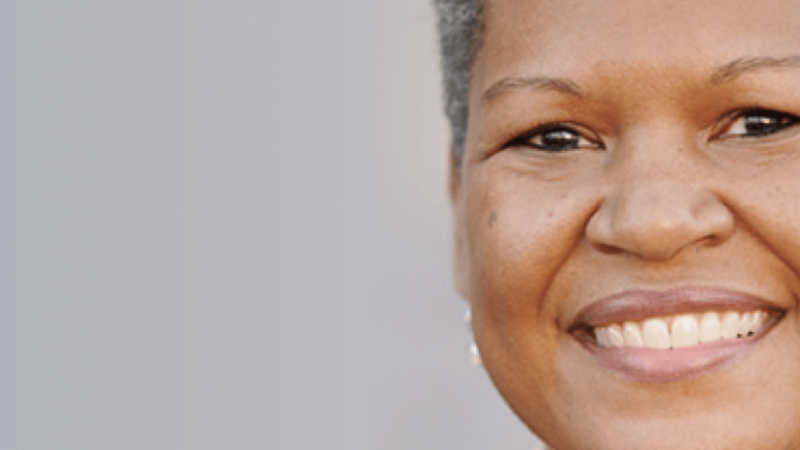-
E117: The Real Work: Letting Go from Within
Michael Singer — October 2, 2025
True spirituality isn’t about mystical experiences or lofty ideals—it’s about honestly facing...
-
Once More: Reflections on Reincarnation and the Gap Between Lives
Tami Simon — September 26, 2025
In this special reflection episode of Insights at the Edge host Tami Simon looks back on her...
-
Honey Tasting Meditation: Build Your Relationship with Sweetness
There is a saying that goes “hurt people hurt people.” I believe this to be true. We have been...
Written by:
Amy Burtaine, Michelle Cassandra Johnson
-
Many Voices, One Journey
The Sounds True Blog
Insights, reflections, and practices from Sounds True teachers, authors, staff, and more. Have a look—to find some inspiration and wisdom for uplifting your day.
Standing Together, and Stepping Up
Written By:
Tami Simon -
The Michael Singer Podcast
Your Highest Intention: Self-Realization
Michael Singer discusses intention—"perhaps the deepest thing we can talk about"—and the path to self-realization.
This Week:
E116: Doing the Best You Can: The Path to Liberation -
Many Voices, One Journey
The Sounds True Blog
Insights, reflections, and practices from Sounds True teachers, authors, staff, and more. Have a look—to find some inspiration and wisdom for uplifting your day.
Take Your Inner Child on Playdates
Written By:
Megan Sherer
600 Podcasts and Counting...
Subscribe to Insights at the Edge to hear all of Tami's interviews (transcripts available, too!), featuring Eckhart Tolle, Caroline Myss, Tara Brach, Jack Kornfield, Adyashanti, and many more.
Most Recent
Ken Hansraj: Watch Your Back—Relieve Back Pain Witho...
Back problems are the leading cause of disability worldwide—and most of us will endure acute or chronic back pain at some time in our lives. The good news: there are excellent, highly effective alternatives to surgery and painkillers.
In this podcast, join Tami Simon in conversation with spine and neck expert Dr. Ken Hansraj for an amazing discussion of his new book, Watch Your Back: Nine Proven Strategies to Reduce Your Neck and Back Pain Without Surgery. They cover the Text Neck study; meditation and the “flash of awareness”; why proper posture is not stiff but gentle; the supination external rotation stretch; the power of movement; the “beautiful jewels” called facet joints; a guided belly breathing practice; the connection between sleep and spinal health; the impacts of stress, and how breath and motion provide an antidote; the metaphor of the “tensionometer”; how the spine connects us to divinity; and more.
Sound Healing & Meditation: How Vocal Toning Can ...
Have you ever sat down to meditate and found it nearly impossible to relax and find the stillness you were hoping for? There’s a little known sound healing secret that may just help you to overcome the initial restlessness when starting your practice.
The secret can actually be found in the opposite of silence, by using the sound of your voice and vocal toning to ground yourself, calm your nervous system, and clear your mind.
How Sound Deepens the Silence
Chanting, mantra, and vocal toning have long been practiced in tandem with silent sitting meditation by both ancient and modern yogis and buddhists. You may have experienced this yourself in a yoga class meditation that starts with three AUM’s. There are different reasons why various types of voice are incorporated into the practice, but when it comes to preparing for silence, knowing this one concept can make all the difference.
When we begin a practice by filling our bodies and our meditation environment with sound, whether that be our own voice, the sound of a singing bowl, gong, harmonium, or other instrument, it creates contrast with silence when the sound is gone. There is a big difference in how we experience silence when the silence is preceded by sound, and once the sound is taken away, the silence can be experienced much more deeply.
Peace Is A Stable Consistent Vibration
The foundational practice here is to use your own voice to create a stable consistent vibration within your body. By repeatedly toning a vowel sound such as Eh, Ah, Oh, Uh, or AUM, on the same note, your body and mind will automatically begin to relax and become more calm and focused. The vagus nerve, which runs through your neck, is right next to your vocal chords, and the effect of the voice on nervous system regulation is well studied.
Vocal toning and humming increases nitric oxide, which can reduce blood pressure, slow the heart rate, and slow brain wave speeds from high functioning beta to slower meditative states of alpha, theta, delta. You can even literally sing yourself to sleep (I know because I’ve done this myself by accident while toning!)
Singing IS Breathwork – Breathing IS Sound Healing
Sound healing is not just about audible frequencies, but also about rhythms and the frequency of rhythms within the body. The breath is one of the most fundamental rhythms we can access for reducing stress and restoring peace within the body.
It is well known that extending an exhale longer than the length of the inhale will slow down the heart rate and calm the nervous system. When we’re singing, toning, humming, and extending the length of that sound, we are essentially extending the length of the exhale to be longer than the inhale.
This is why singing IS breathwork taken to the next level with the sound of your voice. While it may seem a bit awkward at first, your body LOVES the sound of your own voice, and you can nourish your body in profound ways using the gift of this internal instrument.
How to Practice Vocal Toning Before Meditation
Go ahead and get into your meditative position, whether sitting or laying down. For best results, I recommend at least 3-5 minutes of toning or humming to really give yourself time to get lost in the sound.
- Using your voice, find a note that feels comfortable in the moment. This will likely be a lower note in your normal speaking range, or maybe even slightly lower than your normal speaking voice. It should be a note that doesn’t create any strain or tension in your voice, and can allow you to relax while maintaining the pitch.
- Find a vowel sound that feels good to you. For the most grounding and calming effect use Ah, Oh, Uh, or a combination of all three such as AUM (Ah, Oh, Um). For more “clearing effect” EE, and Eh sounds can be effective for releasing stuck and negative thoughts or emotions. Humming with the mouth closed is also a very effective method that can be thought of as singing down into your own body by keeping the sound inside rather than projecting it out.
- At the beginning of each cycle of toning, take a long deep breath through the nose to receive as much breath as you can, and then begin to let the sound emerge from your voice in a slow and controlled manner. Try to extend the length of your sound by releasing only enough breath to create the sound. You may find that after a few rounds of toning you are able to take in more breath and extend your sound for longer periods of time.
- If you feel any self-consciousness, awkwardness, embarrassment coming up, this is totally normal, even for experienced singers! Let it be an opportunity for letting go of any self-judgment and try to stick with the practice. You will find that these feelings will soon go away and will be replaced with feelings of peace and even the experience of timelessness.
- See if you can feel the subtle vibrations traveling through your body. You will likely find that you can feel the sound traveling all the way to your toes, fingers, the hair on your head, various parts of your skin. Just notice where the sound is traveling.
- To take things even deeper, bring in the emotions/intentions of gratitude or love and visualize those positive feelings riding on the sound waves from your voice to every cell of your body, filling yourself with beautiful vibrations.
- Practice for 3-5 minutes or however long feels most comfortable to you, and when you are ready, let your final sounds dissipate into silence. Continue to breathe normally and take notice of how much deeper the silence now feels. You may continue your silent meditation practice from there for however long you desire.
Finding Your Homenote and Balancing Energy with the Voice
If you’re enjoying the use of your voice for stress relief and for starting your meditation practice, there are ways to get even more intentional with the voice. We have the amazing ability to clear energetic blockages, restore balance to energetic deficiencies, and return to a state of peace using our own voices. You can learn more on my website 1:11 Sound Healing.
Nicholas Penn

Nicholas Penn is a life-long musician, producer, and sound therapist with a certification in Sound Healing through Globe Sound Healing Institute. Nicholas is passionate about educating and empowering individuals to access the gift of their own voice to restore peace and improve wellness for themselves and loved ones. He is also a producer for Sounds True and leads strategy and content creation for the Sounds True YouTube channel and Eckhart Tolle Spotify Channel. Learn more at 111soundhealing.com
Unwinding Trauma and PTSD: The Nervous System, Somatic...
The mind-body connection is still a new concept in Western medicine. Descartes’s declaration “I think, therefore I am” encouraged many to view the mind as separate from and superior to the body… for almost 400 years! So, to understand the discovery of feedback loops in the nervous system linking body and mind is to undergo a major paradigm shift, with radical implications for how we view and treat conditions like trauma and PTSD—and how you can empower yourself around your own healing journey.
Why Embodiment Decreases for Trauma Survivors
Until trauma survivors feel their safety has been truly restored, their nervous system relies on defensive mechanisms like dissociation, numbing out, or immobilization. This can feel subjectively like becoming a two-dimensional “stick figure” energetically, with a body that’s barely there.
If you feel like you’re not really inhabiting your body, know that it’s not your fault and you probably had very good historical reasons to leave it. With recent advances in mind-body therapies and somatic psychology, however, there are many ways—when you’re ready—to safely return to experiencing your fully embodied self.
Perhaps the most popular of these therapies is Somatic Experiencing®.
What Is Somatic Experiencing?
Somatic Experiencing is a form of therapy originally developed by Dr. Peter Levine. It proceeds from the premise that trauma is not just “in your head.” Though you may feel off-kilter psychologically in the wake of trauma, you’re not “crazy”—you have a nervous system that has been put into overdrive.
The body can’t distinguish physical trauma from mental or emotional trauma, and this leads the brain, once you’ve had trauma, to get stuck in a state of believing that you’re in perpetual danger.
Without a way to shake off the effects of having been in a dangerous situation in the past, trauma survivors disconnect from their bodies; the trauma gets “frozen” inside. With this frozenness in the body, your emotions can become dysregulated easily; you might at times feel spacey, agitated, depressed, panicky, collapsed—or all of the above.
Again, it’s not your fault that any of this is happening: dissociating and numbing are a natural defense mechanism. Still, it may take some work, often within a therapeutic container, to start to “thaw” the frozenness or unwind the trauma.
Somatic Experiencing practitioners help clients increase their awareness of their kinesthetic, embodied experience, and lead them through techniques to gradually release stresses that have been locked into the body. Allowing both physical responses and emotions to come through, bit by bit, restores psychological balance and can help resolve even long-term PTSD.
How It All Works: Polyvagal Theory
Neuroscientist and psychologist Dr. Stephen Porges synthesized Polyvagal Theory as a way to explain human behavior in terms of the evolution of our autonomic nervous system. It not only provides a biological frame for parts of Somatic Experiencing, it has helped therapists develop a host of somatically attuned interventions and refined the way they interact with clients.
The centerpiece of Polyvagal Theory is the vagus nerve. This long nerve mediates what Porges calls the “social engagement” system. The vagus nerve’s ventral branch supports social engagement: a calm and playful, pro-social state. Its dorsal branch supports the opposite: immobilization (characterized by dissociation, depression, numbness, or “freeze.”)
If you undergo a trauma, the dorsal branch of the vagus nerve activates a state of immobilization. On the other hand, when you feel safe and embodied, your parasympathetic nervous system functions smoothly and you can (ideally) engage socially. What makes all this possible is neuroception, perception that takes place without our conscious awareness, tipping us from safety into other modes, like fight, flight, or freeze.
Clinicians trained in Polyvagal Theory support clients in making shifts in their autonomic responses, from “freeze” and shutdown to fight or flight—to safety—in order to restore a healthy range of responses and the feeling of being safe.
Practicing co-regulation with their clients helps the clients to re-establish inner safety and other positive feeling states.
How You Can Increase Your Embodiment
Trauma severs us from our body, and embodiment brings us back.
Embodiment practices like somatic therapies, qigong, and various athletic activities are some of the best medicine around for the nervous system. Even just taking a long walk while paying attention to your feet making contact with the earth can be quite supportive.
Sounds True also has created The Healing Trauma Program to offer support for your healing. The course has a faculty of 13 esteemed trauma experts—including Somatic Experiencing founder Dr. Peter Levine, Polyvagal Theory expert Deb Dana, Dr. Gabor Maté, Konda Mason, Thomas Hübl, and many others. The program takes place over nine months and is truly an immersion into the world of trauma recovery, with teachings, guided practices, live practice sessions and Live Q&As. Find out more about The Healing Trauma Program.
Customer Favorites
Compassion as a Superpower
Michelle Maldonado is founder and CEO of Lucenscia, a firm dedicated to human flourishing and mindful business transformation. She is a graduate of Barnard College at Columbia University and The George Washington University Law School, as well as an internationally certified mindfulness teacher and founding faculty for Daniel Goleman’s Emotional Intelligence Coaching Certification Program. With Sounds True, she’s on the faculty of our Inner MBA program. In this episode of Insights at the Edge, Tami Simon talks to Michelle about how a brush with mindfulness at a very young age instilled her with a sense of presence that has guided her personal and professional path. They discuss why nurturing authentic connection and deep, intuitive care in the workplace leads to better human and organizational outcomes, and some of the challenges businesses face in making sustained change. She explains how unconscious bias seeps into our perceptions “like melted butter into nooks and crannies” and offers insights for addressing bias from a place of healing. They also discuss treating others as “human beings rather than human doings,” the journey of discovering our own power, embracing “compassion projects” as a means of public service and emotional release, and how we can best bring our care and attention to matters that affect us all.
There’s a Ritual for That
Ashley River Brant is a multidimensional artist and healer whose focus is on awakening the creative and intuitive power within us all. She is the creator of Soul Tattoo®, a ceremonial intuitive tattooing modality, and the host of a podcast called Weaving Your Web. She also brings forth her medicine as a filmmaker, photographer, illustrator, and writer. With Sounds True, Ashley is releasing her first book, Tending to the Sacred: Rituals to Connect with Earth, Spirit, and Self. In this episode of Insights at the Edge, Tami Simon talks with Ashley about how creativity and ritual have given her a “bridge home” to a sense of purpose and belonging from the traumas of her childhood. Ashley describes how she moves through life with a “divine team of support” composed of both earthly and cosmic beings, and she offers us a ritual for connecting with our own spirit guides. They also discuss tapping into past-life memory as a process for healing present wounds, creating space to practice “sacred listening” to nature and our ancestors, and the four pillars of ritual Ashley uses to create a life of intention.
Offering Everything to the Divine
Tosha Silver is a veteran spiritual teacher and the author of Change Me Prayers: The Hidden Power of Spiritual Surrender. She runs the online Living “Outrageous Openness” school, which guides participants in discovering their own “inner love.” In this inspiring episode of Insights at the Edge, Tosha and Tami Simon speak on offering ourselves and our situation to the divine—especially during tough or troubling times. They also talk about the importance of knowing how to receive, and why so many find it difficult to do so. Finally, Tami and Tosha discuss the importance of clearing clutter from our lives and how to write our own prayers for personal change. (65 minutes)






